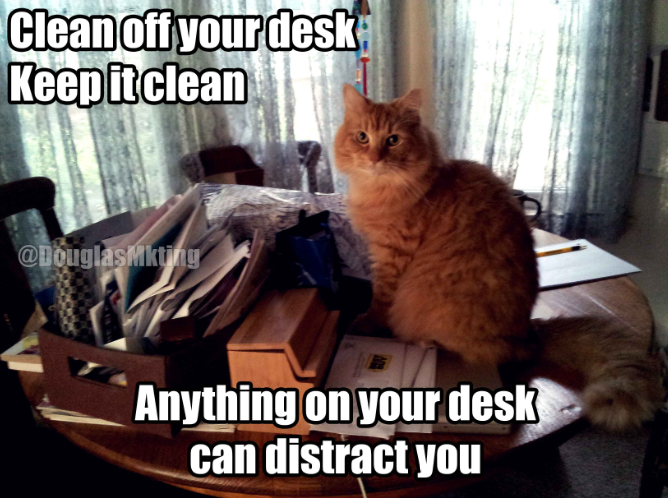Over the course of the month of October, I participated in my 30 Day Livestream Writing Challenge.
There were some ups, some downs, and a lot of small emergencies that came up in the middle of the night with no warning whatsoever. But like every challenge I’ve done so far – whether it’s the Stephen King Writing Challenge or the 5AM Writer’s Club Challenge – I learned something from my 30 days in the trenches.
Lesson One: Make sure your desk is optimized.
In the beginning, all I thought I needed for this challenge was a riser for my laptop and maybe a wireless keyboard. But then I began to have massive failures with my laptop’s power supplies and back up batteries. The first few episodes in the series ended with me getting the last of the day’s word count down with a pencil and paper.
When you’re writing by yourself, you can blow off the issues with your setup. Oh sure, this wire is constantly loose, but it’s an old computer. Oh sure, that word processing program shuts down unexpectedly, but I should have been saving my work. When you have to explain why your stuff is acting that way to an audience – as you’re trying to perform a task on a time limit – it’s a completely different matter.
I ended up replacing my entire work station over the course of the month. I even bought other accoutrements to the setup that I didn’t have before – like a ring light and a technicolor sound system. And while I hope the entire painful upgrading process was at least entertaining for the people watching, it was beyond frustrating and time consuming for me.
So if you are starting a writing project that will take months, be sure your space is optimized:
- Make sure that the only items in your writing space are things that will make it easier to write.
- Make sure all of your equipment can function for at least two hours without completely melting down.
- Make sure that you have scheduled times where you know you can be completely alone.
And if something in your set up keeps breaking in such a way that it’s delaying the process, replace it as quickly as your finances allow.

Lesson Two: Make sure you have a general plan
I can’t tell you how many times I ran into a mild case of writer’s block on camera and had to turn to my previous failed drafts for a good idea of where I needed to go. Even when I was checking back on what hadn’t worked, those old notes and drafts helped me build a roadmap for my journey that I couldn’t have done without.
Obviously your writing project is your own, and everyone has their own writing technique. I’m not trying to start a war between the Planners and Pantsers, here. But having a general outline of where you want to go – or even a failed earlier version of the project – can go a long way in determining how successful your project will be.
Make sure, at bare minimum, you have the following elements of your story decided before you get started:
| Fiction | Non Fiction |
| Beginning | Word Count |
| Rising Action | General Focus |
| Inciting Incident | Overarching theme |
| Midpoint | Client Requested Additions |
| Climax | Resources Needed |
| Resolution |
Obviously, any of these can change as the project progresses. But having a good idea of what they should be in the beginning will get you where you need to go faster.
Lesson Three: Know the Difference Between An Emergency and A Distraction
Halfway through one of my last installments, one of the squirrels that keep sneaking into my yard to grab nuts from the old walnut tree managed to temporarily get inside my attic. The ladder I normally used to climb up there was in the garage, and it would have taken at least another hour to go out and get it. As I was having a panic attack about property values on camera, the little asshole pulled itself out of the attic and scampered away.
And with shaking hands, I managed to find a way to finish that day’s installment.
You should never make your writing project the only thing that’s going on in your life. You will have your own proverbial attic squirrels, no matter how short of a story you’re writing. But you should also understand the difference between a real emergency and a distraction that should be handled later. The electrical fuse blowing in the basement is something that should be handled immediately. Tracking down homework or helping an older family member with a project is something that can wait 30 minutes.
So when something comes up – and it will! – ask yourself:
- Is this time sensitive?
- Can anyone else handle this issue?
- What are the consequences of not handling the issue?
- How long do I have left in my scheduled writing time?
- Will handling this set a bad precedence for what can interrupt me?

Don’t be afraid to put off most distractions for the 30-60 minutes you need to finish that day’s work. Be firm to anyone who is just interested in spending time with you, but not in rescheduling.
But if you hear a squirrel revving a chainsaw inside your walls, it might be time to pack it in for the day.
